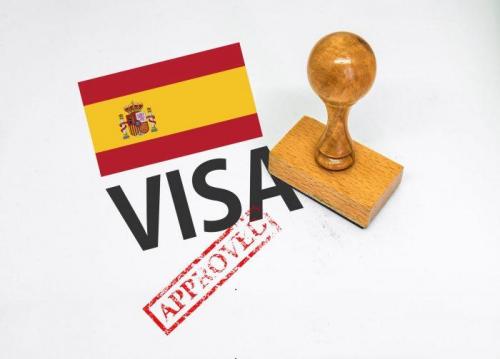A Solicitor’s Guide to the Spanish Tax System
Are you a Spanish resident? Are you aware of the tax implications?
If you spend more than half the year in Spain (183 days +) you will be considered a Spanish resident, and therefore a Spanish tax payer. Although there are exceptions depending on your personal circumstances, such as family and work.
Your tax obligations as a Spanish resident:
1. Income tax
As a Spanish resident, you must register as a taxpayer in Spain and pay yearly income tax on all your assets. To do this, you are required to inform the Spanish Tax Revenue service about all the assets you own throughout the world, although (as always) exceptions apply due to double taxation tax regimen.
This income tax is known as IRPF/ Impuesto sobre la renta de las personas fisicas and it is a progressive tax
Progressive tax definition: A progressive tax is based on the taxpayer’s ability to pay. It imposes a lower tax rate on low-income earners than on those with a higher income. This is usually achieved by creating tax brackets that group taxpayers by income ranges. The UK has a similar system.
Here’s what you would be expected to pay:
For the first €12,450 you will pay 19% tax to the Public Treasury.
From € 12,450 to € 20,200, you will pay 24%.
From € 20,200 to € 35,200, taxed at 30%.
From € 35,200 to € 60,000, it is taxed at 37%.
And above € 60,000, you will pay 45%.
Income tax is paid annually in Spain. You are required to inform the Tax Office between March and June each year regarding your income from the year before.
A guide to paying your taxes in Spain by Lauren Hughes, solicitor at H&N Abogados, an international law firm made up of experienced UK and Spanish lawyers, with offices in the UK and Spain.
2. Worker or Self-employed status
If you are also a worker in Spain, whether self-employed or employed, you must contribute to the Spanish social security system on a monthly basis. The amount you are required to contribute depends on the hours worked and payment quoted.
Self-employed workers in Spain must also make quarterly self-assessment declarations and payments for personal income tax, VAT or rentals and an annual declaration of payments to third parties. These can be done online, so don’t forget to request your digital signature certificate as soon as possible from the Tax Office.
What’s a digital signature certificate and why do I need one? Traditionally. Spanish legal or administrative procedures were a long, arduous process that involved making appointments with various local government offices and long queues. That is now a thing of the past with the introduction of digital signature certificates, an online identification document that will allow you to carry out these procedures online.
3. Tax implication for Business
A business is considered a resident in Spain for tax purposes if it has been incorporated in accordance with Spanish law, has its registered office in Spain or has its effective address in Spain.
VAT
The VAT is common to all economic activities (also for the self-employed as mentioned before) but it is not same for everyone. There are, in fact, three different types of VAT in Spain:
- the super-reduced VAT of 4% – applicable to basic necessities, such as books or medicines.
- the reduced VAT of 10% – applicable to food products medicines for veterinary use, water, pharmaceutical products, buying and selling of properties, transport.
- And finally, VAT of 21% – applicable to other products and services that cannot be covered in the two previous cases.
CORPORATE TAX
In general, you must pay 25% of all company income as corporate tax.
It is necessary to point out that Corporate Tax varies, as there are reduced rates in some cases, such as for entrepreneurs, work cooperatives, and micro-enterprises.
SOCIAL SECURITY CONTRIBUTIONS
In Spain, payment of Social Security contributions (NHS) represents more than three-quarters of the total taxes payable by all companies. In the specific case of SMEs (small and medium sized enterprises with fewer than 250 employees), these taxes represent 78% of total taxes paid, while for large companies it can be as much as 92%.
4. Tax on economic activities (IAE)
Tax can be applied for exercising a business, professional or artistic activity. It is a municipal tax but shared with the State. The payment is due annually, and the AEAT manages the national and provincial quota.
Individuals or companies or entities that do not exceed one million euros of annual turnover are exempt (the first two years are exempt, the figure for the penultimate year prior to the accrual of the tax is evaluated).
5. Luxury Assets
If you own luxury goods in Spain you will have to pay wealth tax, this is known as IP/ Impuesto sobre el patrimonio, regardless of whether or not you are considered a tax resident.
This tax is levied on assets such as investments and savings, property and real estate investments, cars, boats, airplanes, jewellery, art etc. But you will only have to pay tax if the value exceeds €700,000 (€ 500,000 in Catalonia). The wealth tax ranges from 0.2% to 2.5% of total value and is paid annually.
6. Inheritance and Donations
Another tax to take into account is the ISD/Impuesto de sucesiones y donaciones this is the Inheritance and Donation tax. This. tax must be paid by anyone that accepts an asset by inheritance or donation.
This Spanish inheritance and donation tax is state and locally taxable, so the amount to be paid varies according to your personal circumstances and localities. It must be paid within 6 months of the act that generates the tax obligation (death or donation). Extension of the deadline for compliance can be requested if deemed necessary, if the deadline to make the payment is exceeded with no deadline suspension granted, the Tax Office may issue a fine according to the days of non-compliance, so we recommend to always request the deadline suspension to avoid fines.
7. Capital Gain Tax
This tax is levied on the profit obtained from the sale of properties or shares, you will have to pay between 19 and 23% of the profit obtained to the Public Treasury if you are a resident in Spain. If you are not a Spanish resident, but you are a resident in another EU country, you will be taxed at 19%, but residents outside the EU are taxed at 24%, so non-resident British citizens selling their property in Spain may want to consider the tax implications of becoming residents before they sell their property.
There is also a local Capital Gain Tax in place known as Plusvalia that taxes the difference between the cadastral value of the property (the value that the Spanish administration gives to each property, based on data found on the land registry), from the moment of acquisition to the moment of the transfer, and varies from one location to another (municipal capital gain). This is paid to the Town Hall where the property is located.
8. Other Taxes:
Are you thinking of buying a property in Spain? You will have to pay the following taxes:
ITP/Impuesto de transmision patrimonial for used homes (you will have to pay between 8 and 10% of the purchase price) or VAT for new properties (generally 10% purchase price)
You must also pay the documented legal act tax AJD/Acto Juridico Documentado, which varies between 0.5 to 1.5% depending on your location. If you are buying with a mortgage loan, you will also have to pay the AJD for this loan registration.
Once you become a homeowner, you will have to pay the yearly council tax (IBI/Impuesto de Bienes Inmuebles) that varies from one town to another and taxes the Cadastral value of the property.
If you own a vehicle in Spain you will also have to pay the yearly tax for it, known as IVTM/ Impuesto sobre vehiculos de traccion mecánica.
We hope this article is useful. If you have any further questions, please don’t hesitate to contact us directly.
A guide to paying your taxes in Spain by Lauren Hughes, solicitor at H&N Abogados, an international law firm made up of experienced UK and Spanish lawyers, with offices in the UK and Spain.

